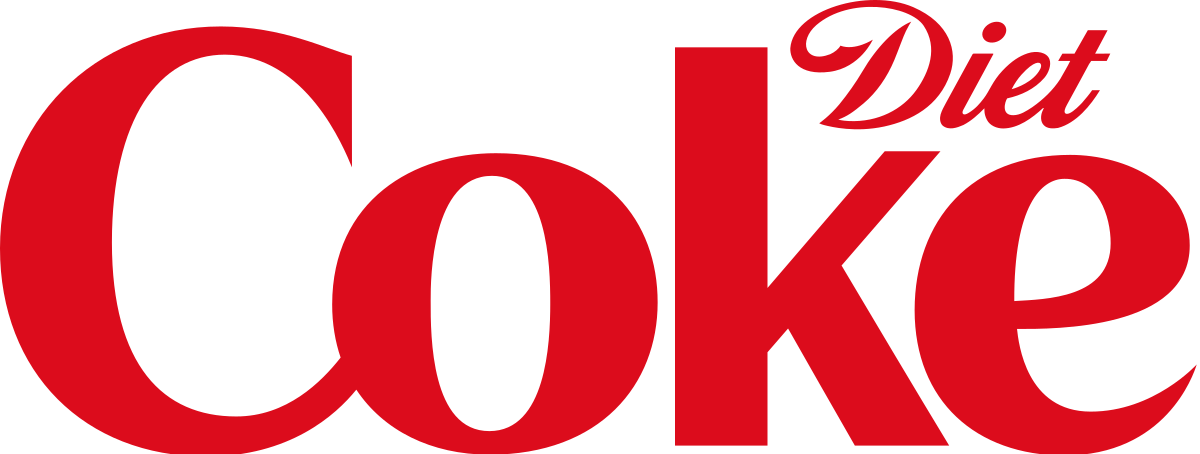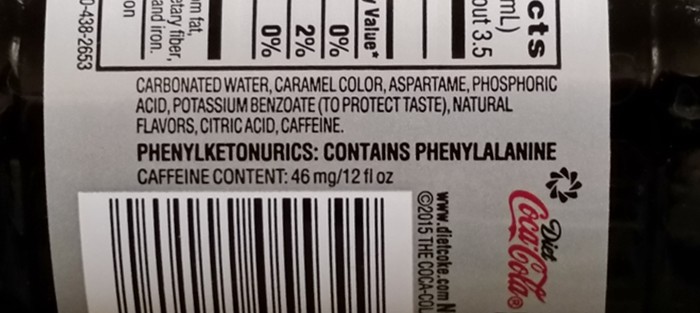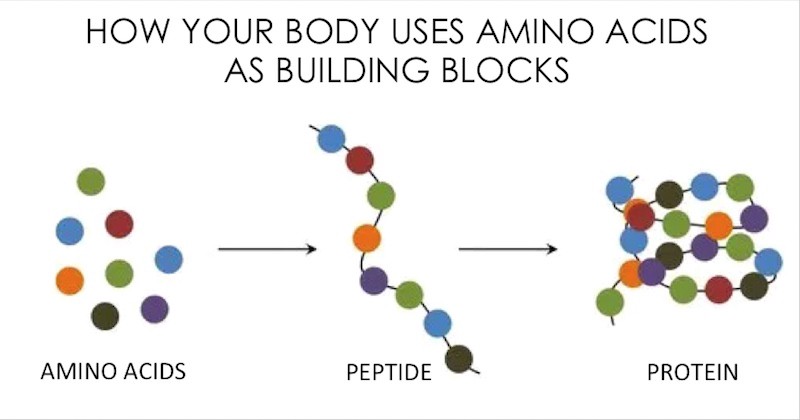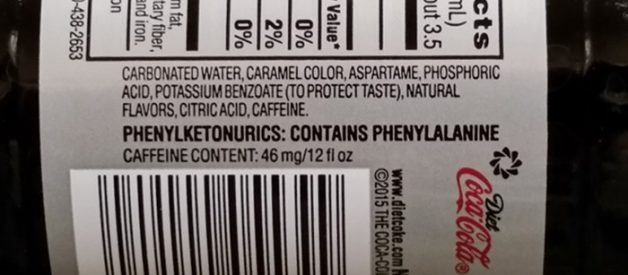 image credit: https://upload.wikimedia.org/wikipedia/commons/thumb/3/3c/Diet_Coke_logo.svg/1200px-Diet_Coke_logo.svg.png
image credit: https://upload.wikimedia.org/wikipedia/commons/thumb/3/3c/Diet_Coke_logo.svg/1200px-Diet_Coke_logo.svg.png
If you?ve ever stared listlessly at the label while drinking from a Diet Coke can, you might have noticed this warning next to the Nutrition Facts ? ?PHENYLKETONURICS: CONTAINS PHENYLALANINE.?
 Warning for phenylketonurics on a Coca-Cola label; image credit: https://culinarylore.com/wp-content/uploads/2018/06/phenylketonurics-warning-diet-coke.jpg
Warning for phenylketonurics on a Coca-Cola label; image credit: https://culinarylore.com/wp-content/uploads/2018/06/phenylketonurics-warning-diet-coke.jpg
Chances are, you didn?t give it a second thought. ?Phenylketonurics? is around sixteen letters too long, and there are far simpler words that you would rather focus on ? ?soda,? ?coke,? and ?food,? to name a few. What exactly does this intimidating warning mean, however? Does it apply to you? And why is it found on such a poor, innocent Coke can?
Phenylalanine, to start things off, is a type of amino acid. Amino acids are frequently described as the building blocks of proteins; different amino acids from a fixed set are linked together to form proteins in the same way that different letters from the alphabet are linked together to form words. These proteins then fulfill a variety of purposes in the human body by serving as enzymes, hormones, structural components, and more.
 A visual model for the construction of proteins by linking together amino acids; image credit: https://d2jmvrsizmvf4x.cloudfront.net/JDnyOQ36imV3EgtfvsQz_amino-acids-protein.jpg
A visual model for the construction of proteins by linking together amino acids; image credit: https://d2jmvrsizmvf4x.cloudfront.net/JDnyOQ36imV3EgtfvsQz_amino-acids-protein.jpg
The human body requires 20 amino acids in order to maintain proper health. Of them, 11 can be made directly by the body and are thus classified as nonessential amino acids. The remaining nine? one of them being phenylalanine ? are termed essential amino acids because they cannot be manufactured by the body and must be acquired by consuming protein through our diet, such as from meat, dairy, or beans. The body is generally capable of breaking down consumed protein into its constituent amino acids and then using them to build new proteins with altered amino acid sequences.
In a rare genetic disorder called phenylketonuria (abbreviated as PKU), however, a mutation in the gene PAH renders the enzyme phenylalanine hydroxylase nonfunctional. Since this enzyme is responsible for converting phenylalanine to other usable compounds, the disorder leaves the body incapable of processing phenylalanine. When an individual with PKU consumes protein-rich foods, phenylalanine accumulates to dangerously high levels in the body and can cause symptoms such as seizures, hyperactivity, mental retardation, and potentially severe brain damage.
 The chemical structure of phenylalanine, one of twenty amino acids required by the human body; image credit: https://upload.wikimedia.org/wikipedia/commons/thumb/7/7a/L-Phenylalanin_-_L-Phenylalanine.svg/1200px-L-Phenylalanin_-_L-Phenylalanine.svg.png
The chemical structure of phenylalanine, one of twenty amino acids required by the human body; image credit: https://upload.wikimedia.org/wikipedia/commons/thumb/7/7a/L-Phenylalanin_-_L-Phenylalanine.svg/1200px-L-Phenylalanin_-_L-Phenylalanine.svg.png
Phenylketonuria can be diagnosed through a blood test shortly after birth. If a newborn tests positive for PKU, negative repercussions can be avoided by abiding by a strict lifetime diet that avoids phenylalanine and limits protein intake. Other amino acids can be supplied through a special PKU formula, which provides the necessary nutrients for proper health.
Diet Coke, of course, is not exactly considered to be a protein-rich food. However, it does contain aspartame, which is an artificial sweeter composed of two amino acids: aspartic acid and phenylalanine. It thus poses as a severe health concern to phenylketonurics, or individuals afflicted with phenylketonuria. Since Diet Coke uses aspartame to provide sweetness while still remaining sugar-free, the warning on the can serves as an important health note for phenylketonurics.
For non-PKU individuals, however, I?ll let you resume your regularly scheduled drinking of Diet Coke in peace.
Works Cited
?Aspartame.? American Cancer Society, 30 April 2018, https://www.cancer.org/cancer/cancer-causes/aspartame.html. Accessed 5 Jan. 2019.
Kubala, Jillian. ?Essential Amino Acids: Definition, Benefits and Food Sources.? Healthline, 12 June 2018, https://www.healthline.com/nutrition/essential-amino-acids. Accessed 5 Jan. 2019.
?Phenylketonuria (PKU).? Mayo Clinic, 27 Jan. 2018, https://www.mayoclinic.org/diseases-conditions/phenylketonuria/symptoms-causes/syc-20376302. Accessed 5 Jan. 2019.
? Karena Yan
+++

To learn more about making your voice heard, visit us at our website. To take action, sign and share our petition to safeguard science in our schools, communities, and futures. To be a part of our conversation, join us on Twitter@ScienceTeens, on Instagram at scienceteens, and on Snapchat at march4science.


